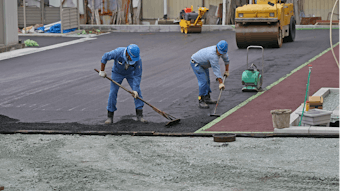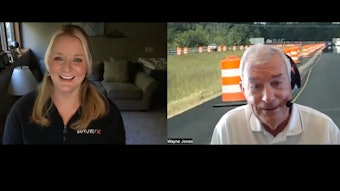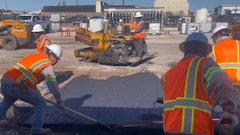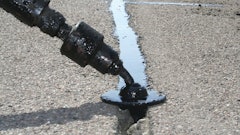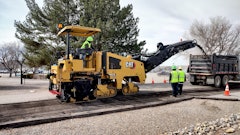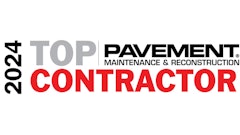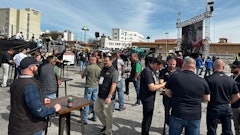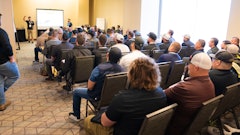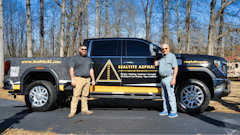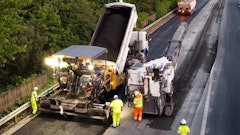
In just eight days this past summer, Woburn, MA-based U.S. Pavement Services excavated, ripped and repaired 2,500 linear feet of all existing campus walkways at Harvard Business School, including the walkways in the campus’ main courtyard, where the school was originally located when founded in 1908. The company took out all existing asphalt, installed underground drainage, and laid down two lifts of porous asphalt, a binder lift and top lift.
Harvard University is widely known for being one of the most beautiful campuses in the New England area, with thousands of visitors touring the campus each year. Harvard Business School, located along the Charles River, is world renown for being the only top-ranked business school with its own self-contained residential campus.
Two-fold Challenge
U.S. Pavement has been working on various projects with the prestigious Ivy League school for nine years. “One of the challenges of working here is perceptions,” says David Musto, U.S. Pavement vice president. “Harvard has very high standards that extend beyond academics, and the school expects any company working there to represent itself in a professional manner, delivering a very high standard of service.”
Much of the work completed for this project was done at the center of campus at the main courtyard in front of the library, the most high-profile area on campus. For this particular job, the U.S. Pavement crews took extra precautions to ensure no asphalt was spilled on the property.
The other challenge U.S. Pavement faced was accessing the areas being paved. “Our crews used smaller Bobcat skid steer loaders to shuttle the mix from the trucks in the staging area right outside the quad to the paver in the middle of the courtyard,” Musto says. “This allowed for easier access in tight areas and avoided unnecessary damage to the courtyard landscape.”
In addition, the walkways were 6 feet wide – too wide for a normal walkway paver, but not wide enough for a regular paver. So U.S. Pavement relied on a LeeBoy cart-path specific paver instead
Transformation
Mini-excavators removed the old asphalt before crews started digging a trench for drainage and making sure grade and flow would accommodate the drained water. They filled the trench with stone and then placed two layers of porous asphalt. One-ton Hamm rollers were used to compact the asphalt.
Musto notes the primary reason for porous asphalt is to keep water runoff from flowing into the neighboring Charles River. Instead water percolates into and through the asphalt pavement into the ground. The new walkway would be more environmentally friendly than regular asphalt, but it would also require more maintenance since a special blend of calcium chloride needs to be used in the winter to keep the walkways clean.
Walkway maintenance was left to Cambridge Landscaping, a company that has worked closely with U.S. Pavement over the years.
Changing Mindset
Musto reiterated how this job differed from a more typical job where crews focused on doing as much as they can do in a day.
“Careful planning was done several days in advance to ensure the asphalt plant would have the special mix of porous material ready to go when we needed it and to find a way to stage the job, remove the old asphalt, and bring an eight-man paving crew all with minimal disruption.”
Throughout the two-week period, U.S. Pavement Services did nothing less than provide “white glove service” to ensure that the job was done and that as the finished product represented the university’s esteemed reputation.
Based in Madison, WI, Rod Dickens is a freelance writer specializing in the construction industry.
